Tech
What to expect from the Amsterdam startup ecosystem in 2024
Amsterdam, the Dutch capital, continues to remain the third major startup ecosystem in Europe, despite a difficult funding environment last year.
If the year started on a tepid note, then it certainly ended at a peak with the best quarter of the year in terms of both the deals and the total amount invested.
The Dutch startups raised more than €1.5B in 2023, with large funding rounds dominating across sectors like cleantech and healthcare.
The Dutch startups raised €420M in Q1 2023, €525M in Q2, €420M in Q3, and reached a peak of €576M during the final quarter (Q4) of the year, according to the Quarterly Startup Report.
The funding reports underlined what has the headlining aspect of the Dutch startup ecosystem – fixing 21st-century problems rather than chasing the hype train.
The Amsterdam and Dutch startup scene
If 2023 were the year of AI hype globally, then the Dutch tech ecosystem showed there is depth in the startup world with several biotech companies dominating funding in 2023.
The ecosystem also stood out for its contribution to the field of health tech and cleantech further highlighting how the ecosystem is evolving to solve some of the most difficult challenges that humans will face beyond AI.
What does stand out is how Amsterdam once again showed its prowess not only as a major tech hub in the Netherlands but also as a hub for emerging cleantech and healthcare hubs in Europe.
With its €129M funding round in the fourth quarter of 2023, Amsterdam-based VectorY Therapeutics single handedly demonstrated interest in the life sciences sector, with it being the only deal of 2023 valued at more than 100 million euros.
The year was full of Amsterdam-based startups flying high, with the first quarter seeing Creative Fabrica trying to rewrite the design industry with AI while Fairphone further pushed the idea of sustainability not being an afterthought in the smartphone industry.
During the second quarter of last year, the investors reaffirmed the idea that the Netherlands remains a hotbed for fintech startups, with Amsterdam-based Fourthline bringing in €50M in funding.
The third quarter played to the seasonal trend with a decline seen in both the number of deals as well as the total amount invested.
With €576M raised during the fourth quarter of 2023, we got a decent look at what to expect in 2024 and how the Dutch startup ecosystem will evolve.
Amsterdam and Dutch startup ecosystem: What to expect in 2024?
The important thing to look forward to won’t be whether Dutch startups raise more funding than the year ahead.
With interest rates at all-time high, investors will think before backing any startup but they will certainly back startups bringing innovation to the forefront.
However, a bigger focus will be whether Dutch startups succeed in creating a diverse and inclusive ecosystem, a promise that didn’t stand according to Dutch D&I in Digital benchmark 2023.
Another factor would be how organisations like Techleap.nl and ACE (Amsterdam Center for Entrepreneurship) evolve themselves. A lot of eyes will be on Techleap.nl, in particular, with its new model and newer programmes to support startups and scaleups.
One thing is clear: if Amsterdam wants to be a bigger player in the European startup ecosystem, it needs to become the home for more scaleups than startups, and that seems like a tall order at this moment.
To further understand how the Amsterdam and Dutch startup ecosystem as a whole will change in 2024, we asked 6 key stakeholders with direct involvement in the startup ecosystem.
Their deep knowledge and insights into the industry shed light on the road ahead for Dutch startups and entrepreneurs, as well as startups that stand out. Here’s a lightly edited excerpt from various experts:
[VC] Warner Philips, Managing Partner at Rubio Impact Ventures
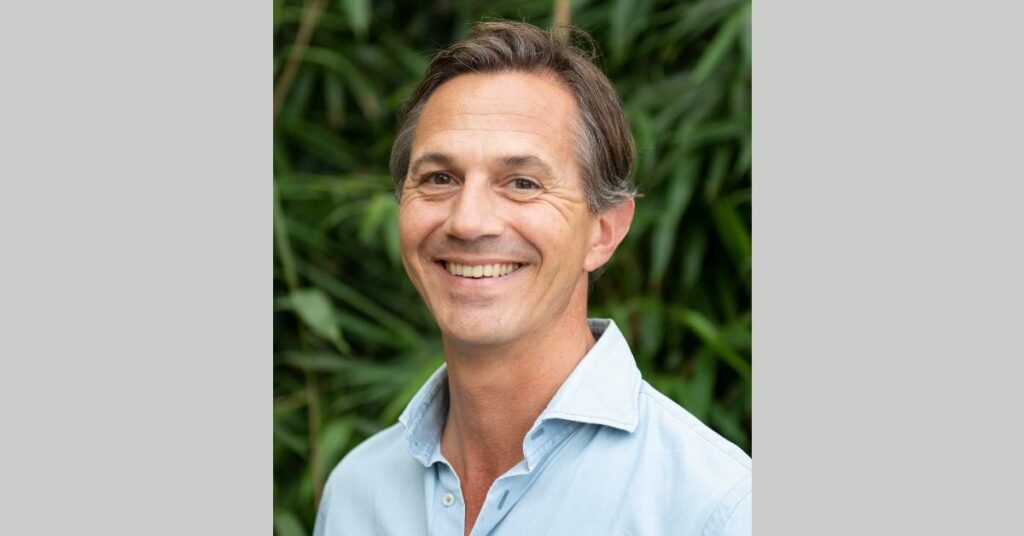

SC: What new startup/tech trends can the city expect to witness this year?
Warner: (Generative) AI will rapidly come of age: things will go right, and things will go wrong: it happens with any major new technology (and AI is arguably one of the most formidable ones we’ll experience as humankind). I believe the HITL is the way to go here, where humans and machines grow together and this will introduce a plethora of opportunities and jobs that will first feel threatening, then be embraced, then will swing to excess (good and bad) and the land somewhere in the middle (more likely a generational development than just next 12 months!)
SC: What change would you like to witness in the Dutch tech ecosystem in 2024?
Warner: Having been a VC/Entrepreneur since 1996 (incl .com bubble/Great Recession/Covid), I’m excited to see that (the path to) profitability is back on the entrepreneur’s agenda: growth is awesome and essential, but is only meaningful if it creates value for customers and the company (all stakeholders, really). Entrepreneurs who show they know how to create (and capture) healthy unit economics and profits on the horizon will be winners.
SC: Amsterdam was the #3 biggest startup ecosystem in Europe in 2023 behind London and Berlin. Do you see the city moving ahead of Berlin or being able to retain its place in 2024?
Warner: I don’t subscribe to being better than other cities/ecosystems, I prefer that we are the best ecosystem we can be. Each city has its unique (and perhaps underestimated) cultural characteristics that draw entrepreneurs and investors: kind of like why founders pick certain VCs simply because of the personality fit. That said, there are foundational matters that a city/government can help provide such as level playing field tax incentives for people taking risks (employees, entrepreneurs, investors), housing (people gotta live somewhere), and good tech infrastructure. Amsterdam knows what to do!
SC: How do you see the funding environment changing for Dutch startups in 2024?
Warner: In addition to showing your path to profitability, Dutch startups that expand their fundraising horizon internationally will benefit: there is a lot of dry powder in VC funds across Europe with the continued trend in VC specialisation (ClimateTech, Ed- & WorkTech, Food&AgTech, Health etc) so your Seed or A lead might be elsewhere in Europe: Dutch startups are almost per definition limited to a smaller market (NL), inherently wired and set-up for international growth, so raise accordingly!
SC: What can we look forward to in the PeopleTech or HealthTech space in 2024?
Warner: In health, as we continue to see increased consumer/patient demand for care, combined with the urgent need to alleviate the supply side of health and wellness, especially AI-enabled opportunities will be winners that make work and life more efficient, and where professionals can focus where they matter the most, are needed the most, and create value the most (broken record alert: it’s the HITL again). In PeopleTech we are especially excited about “Learn and Earn” the combination of education and job opportunities: be it at a starter level or later stage career. If education is paid for by a guaranteed job, it will also benefit those who cannot afford such training and create more equal access.
SC: Which Amsterdam-based startup do you think everyone should watch out for in 2024?
Warner: OpenUp is extremely excited at how they empower their client’s entire workforce with personalized support for emotional, social and physical well-being, anytime and anywhere. It’s interesting to see that the employer-as-care-enabler (it should be EACE) is becoming the norm again, both the right thing to do (care for people) as the smart thing to do (healthy and happy people are more productive, collaborative and effective).
(Disclosure: Rubio is an investor, and yes, we’re biased, just like AI, but luckily there’s a HITL).
[Scaleups] Myrthe Hooijman, Director of Nextleap and Government Affairs at Techleap
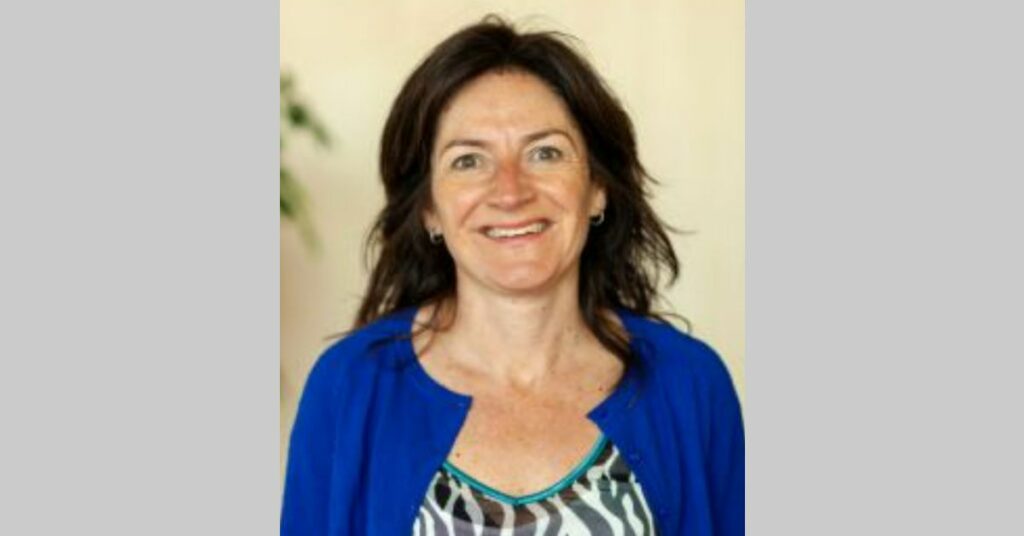

SC: What change would you like to witness in the Dutch tech ecosystem in 2024?
Myrthe: The Netherlands is a great startup country, but becoming a scaleup country requires exponentially more talent and investment. Companies need scale to be able to make an impact and gain market share. We need scaleups as a country to stay strategically autonomous, preserve earning capacity and generate jobs. It’s noteworthy that over 40% of the jobs in the tech sector are created in around 10% of the tech ventures — the scaleups and grownups.
SC: Why is becoming a scaleup country necessary?
Myrthe: The scale ratio in the Netherlands is below the EU average and around 10% lower than Germany and the UK, as per the State of Dutch Tech 2023. To remain competitive and innovative, addressing this gap is crucial.
SC: What can be done better to facilitate startups in their scale journey?
Myrthe: Investing in creating a strong pipeline of future founders, especially in deeptech, is essential to become a scaleup nation. It takes a village to scale a company. Support in the Netherlands should be more aligned around the needs of scaling founders at each phase of their scaling journey. With over 40 knowledge institutions and incubators, Techleap built a database to map and track research-based ventures, enabling us to align better around experienced hurdles and fill in blank spots.
SC: What about the talent and capital challenges?
Myrthe: Creating a larger talent pool is crucial, which requires more accessible and attractive STEM education and digital training. We have to realize that the need for talent is much bigger than can be provided. For example: 40% of the talent at AMSL is international. The Dutch government must be cautious with stopping schemes that attract international talent or students. As seen in Denmar’s struggle to recover from such actions. Additionally, to retain talent, companies in the Netherlands need to invest in making the work environment more inclusive, as foreign workforce often experience inequality. In terms of capital, scaling globally requires deep pockets. In about two-thirds of the investments between 10-100 million euros, there’s involvement from non-Dutch or foreign-only investors. The Netherlands has to welcome these investors and stimulate co-investments by Dutch investors to enable them to join bigger rounds and bigger exits. An impactful addition can be made by pension funds. If we find a way to make investing in the VC asset class more suitable for them, The Netherlands will make great progress.
SC: Any final thoughts on government initiatives?
Myrthe: A huge leap forward would be the new government levelling the tax rate for employees with that of investors on stocks. Now, employees pay almost double the percentage. Stimulating employee participation will lead to more innovation and involvement. Also, the flywheel will get an extra push if experienced entrepreneurs, or talent from successful tech ventures, are encouraged to invest in startups via a fiscal scheme, as proven in ecosystems like in the UK.
[Representation & Diversity] Kimberly Ofori, Partner at Dutch New Narrative Lab (DNNL)
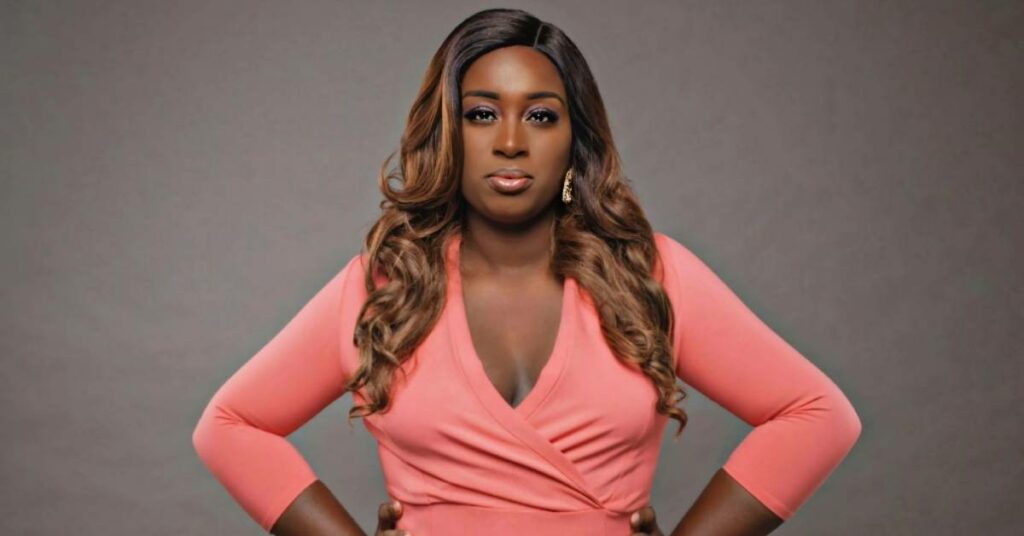

SC: Do you see a more diverse Dutch tech ecosystem this year and if yes, why?
Kimberly: While the VC winter has been rough for many startups, and is likely to impact many startups still this year there is a silver lining. Large rounds of investments were particularly hard to close for startups. But we did see smaller investment rounds between 1-5 million still closing quite rapidly. With VCs looking to invest in startups with actual traction and a clear path to profitability right now, a more diverse pool of founders may get some well-deserved support. We know from research that women-led businesses and diverse teams tend to have a clear (and shorter) path to traction and profitability. Keeping that in mind, as investors continue to focus on a high probability of returns based on track record and proven numbers, we could be looking at a wave of more diverse founders getting funded and scaling up. Thus positively strengthening the Dutch Tech ecosystem with a diverse pool of startups and solutions.
SC: What change would you like to witness in the Dutch tech ecosystem in 2024?
Kimberly: Collaborative growth. When we look at the past 10 years, the Dutch startup ecosystem went through different stages. From trying to be the next Silicon Valley to being a more moderate version of that, to its clear focus on scaling and bringing deep tech solutions to the world. One of the biggest hurdles I see for us to excel is the high level of fragmentation in our ecosystem. A lot of small players with similar activities move in seemingly different directions. This way of working does not give us enough driving force to make impact. For us to harness the growth that we have accomplished so far we need to get clear on the key players within the ecosystem that can make that happen. And as we seek to collaborate more, we create an environment where everything is connected to that common goal. Also, this requires us to have a bold vision and stand by it. From there, I believe the possibilities are endless.
SC: What are the challenges facing the Dutch tech ecosystem and Amsterdam-based startups trying to become diverse?
Kimberly: The first thing we need to tackle is the idea that diversity efforts are a thing that we ‘must’ do. It’s really not about the intention or the trying. Diversity is a fact, you don’t need to do anything for the world around you to be diverse. It’s about creating an environment where everyone could thrive, that’s where the real work starts. Can you build a company that can make a creative genius feel empowered even if they don’t understand your tech jargon? Zooming out of our bubbles and zooming into each other as individuals is what will move the needle on this. Policies are great, but only if you can get the people to understand why it matters. Dutch startups will have to start with the latter first.
SC: How do you see DNNL playing a role in shaping a diverse tech ecosystem in the Netherlands and Amsterdam in 2024?
Kimberly: We have already seen a tremendous appetite for the ‘New Narrative’ that we share from within DNNL. Sharing stories, insights, ideas and actionable steps are key in creating a more inclusive tech and innovation ecosystem in the Netherlands and this is exactly what we are about. We will continue to support founders from all backgrounds, advocate for policies that support an inclusive Entrepreneurship ecosystem and bring together startup ecosystem players to strengthen the Dutch startup ecosystem and help bring it to full capacity.
SC: Which Amsterdam-based startup do you think everyone should watch out for in 2024?
Kimberly: I’d keep a close eye on Sirius. I was highly impressed by the world-class team after meeting founder & CEO Anastasia Kuskova at a Fem-Start-Antler pitch event. And even more impressed by the big problem they are tackling and the mechanics of their solution. And don’t just take my word for it. They are a Techstart 23 startup that recently won the grand prize at the World AI summit, and took home the first place prize at DPW and the sustainability award at ICDA.
[Diversity & Inclusion] Yeni Joseph, Taskforce Lead at Taskforce D&I by NLdigital
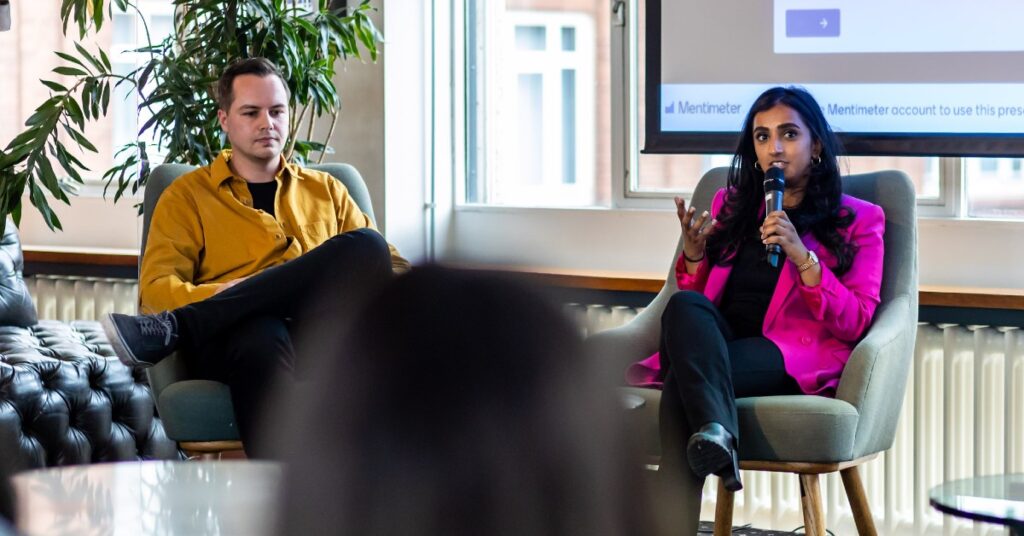

SC: What role will D&I play in reshaping the Dutch tech ecosystem in 2024?
Yeni: D&I is crucial to attract and retain tech talent (widening the tech talent pipeline) through inclusive hiring, hiring from abroad, e.g. startup visa, highly skilled migrant, etc. Key stakeholders (think governments, investors, and corporates) are now more and more interested in the actual impact companies make. We see that diversity and impact are more related (e.g. women-founded startups are most of the time more impact-focused). Looking at the outcomes of our elections, it can be expected that DEI is less of a key priority, although that is not a good development for DEI progress, I do hope that it will make the private sector stand up and accelerate efforts.
SC: Do you see a more diverse Dutch tech ecosystem this year, and if yes, why?
Yeni: Yes, as many regulations related to this are becoming more important. Even if these regulations don’t apply to startups directly (such as ESG reporting, upcoming EU Pay Transparency Directive, Gender Diversity in Boards), still large corporates/suppliers they work with or their investors are requiring this more and more.
SC: What change would you like to witness in the Dutch tech ecosystem in 2024?
Yeni: That we start focusing more on inclusion, instead of “just” diversity. Currently, there is still a lot of focus on gender diversity, which is important. But I would also like to see more focus and progress on e.g. POC, Neurodiversity, Queer community etc.
SC: What are the challenges facing the Dutch tech ecosystem and Amsterdam-based startups trying to become diverse?
Yeni: I still see the lack of DEI data as one of the biggest challenges since it leaves us without a real understanding of where we stand, and it becomes difficult to know what needs to change or if we are making (the right) progress. Another challenge is extensive focus on (gender) diversity, and not enough on inclusion as a whole. Lastly, there is too little investment going into startups led by diverse founders.
SC: How do you see Taskforce D&I playing a role in shaping a diverse tech ecosystem in the Netherlands and Amsterdam in 2024?
Yeni: The role I see for the Taskforce D&I is 1. improving the DEI benchmark and 2. further strengthening partnerships with other leading DEI initiatives such as Diverse Leaders in Tech by Techleap.nl and collaborating with TNW Conference to further accelerate their DEI programming. In addition, we plan to host more sessions to provide the (national) government with policy recommendations around DEI.
SC: Which Amsterdam-based startup do you think everyone should watch out for in 2024?
Yeni: Not a specific startup I want to mention, but I believe a relevant area is Climate Tech
[Life Sciences and Health] Gerty Holla, Lead Health at Amsterdam Economic Board
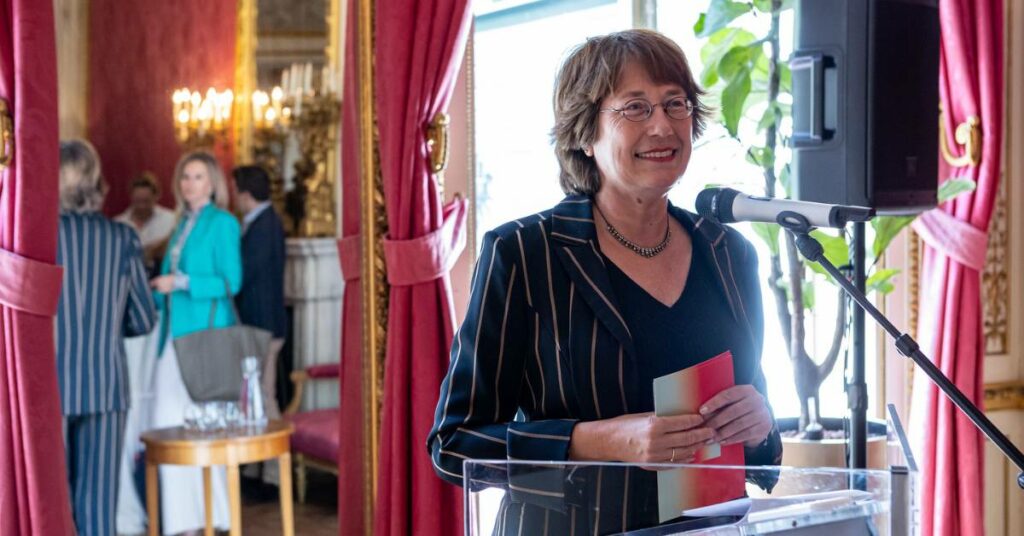

SC: How do you see the life sciences and health industry evolving in 2024?
Gerty: I expect a further shakeout in life science health companies since the capital market keeps being strained. During the last few years, investments were available in abundance. Now we are in a situation with an economic crisis, various wars around us, and increasing interest rates. This means that investors will have a hard time raising new funds, and will be more critical before deciding about follow-up investments. Startups will have a harder time to fundraise and might have to settle for lower valuations, smaller rounds and tougher milestones. Investors will focus on the portfolio companies and be more reluctant to add new companies to their portfolios. The winners will survive and come out even tougher. Others will have to close down. This brings focus to the market and financial investments. The role of public parties, like InvestNL and regional support organisations like ROM InWest, will further increase. They can decrease the risk for private investments, and make sure that promising important innovative startups can still be funded. On the other hand: some very promising areas offer a lot of possibilities for the LSH industry: the use of AI in health, innovative approaches in the field of the much needed prevention, and the development of non-human alternatives for drug testing.
SC: What role do you see Amsterdam-based LSH startups play in this space?
Gerty: Since Amsterdam is a region with a lot of startups, and a strong investor base, I am convinced that there is a strong regional ecosystem, also in more difficult circumstances. With four flourishing innovation districts, universities, hospitals and companies there is a fruitful source for a steady stream of new startups that will fight their way to the market, using the possibilities of the new health tech trends and societal needs.
SC: Which health tech segments are poised for growth in Amsterdam in 2024, and why?
Gerty: I see health & AI, prevention, and non-animal testing as big health tech segments this year.
- Health & AI/data: AI is booming, and can mean a lot for innovative developments in health. The (re)use of health data is a sensitive topic, but there is growing awareness of the importance of data as a source for innovation. The European Health Data Space will smoothen the path for finding solutions for the safe and trusted use of data. The Amsterdam Economic Board has been working on this topic to create the foundations for a solid regional hub with Health Data Space Amsterdam. AmsterdamAI as a regional AI hub also supports the development in this field, where all regional AI knowhow joined forces, also in the field of health
- Prevention: For years politics has been talking about the importance of prevention, without many effective approaches, but in an age of growing healthcare costs, an ageing population and a shortage of personnel, society has now come to a point where we have to move from our focus on curing disease to keeping people healthy. I expect a lot from young innovative startups like Binqy, Ancora Health, Reset Technologies, HealthPlusAI, PacMed, and creative financing approaches like health impact bonds and the impact fund of GelijkGezond. At the Amsterdam Economic Board we support this with our Prevention initiative, where we bring parties from many sectors together in a regional prevention coalition.
- Non-animal drug testing models: There are so many innovative developments in the field of non-animal testing models, which give a much better prediction of the effect of drugs in humans than the testing on animals: development of organoids, iPSC-based cells, organ on a chip, but also human virtual models based on data and AI. These technologies save development costs because you know the benefits or toxicity of a compound before the very expensive human drug trial Phase. It prevents health issues and discovers negative side effects in patients. And it is more ethical, without sacrificing animals, and avoiding outsourcing the tests on animals in countries with much more flexible and less ethical legislation. The FDA Modernisation Act finally allows non-animal models like cell-based assays and computer models as alternatives to investigate the safety and effectiveness of a drug. This paves the way for more and further commercial applications. The Amsterdam Region is strong in this field: every year I see a lot of spin-offs of Amsterdam UMC in the Proefdier Vrij Venture Challenge for startups, in 2022 half of the teams.
SC: Which startup do you see as the most promising LSH startup to watch in 2024?
Gerty: InBiome is a very promising startup at Amsterdam Science Park. Their technology speeds up bacterial diagnostics, from days to hours. So treatment can start faster, patients recover faster, hospital stays shorter and the risk of medical complications is reduced. Ellogon.AI is promising since it makes it possible to select the cancer patients that will benefit from immunotherapy. This saves a lot of treatment and side effects for patients that will not benefit and saves money and time for medical personnel.
[Remote Work] Job van der Voort, CEO at Remote
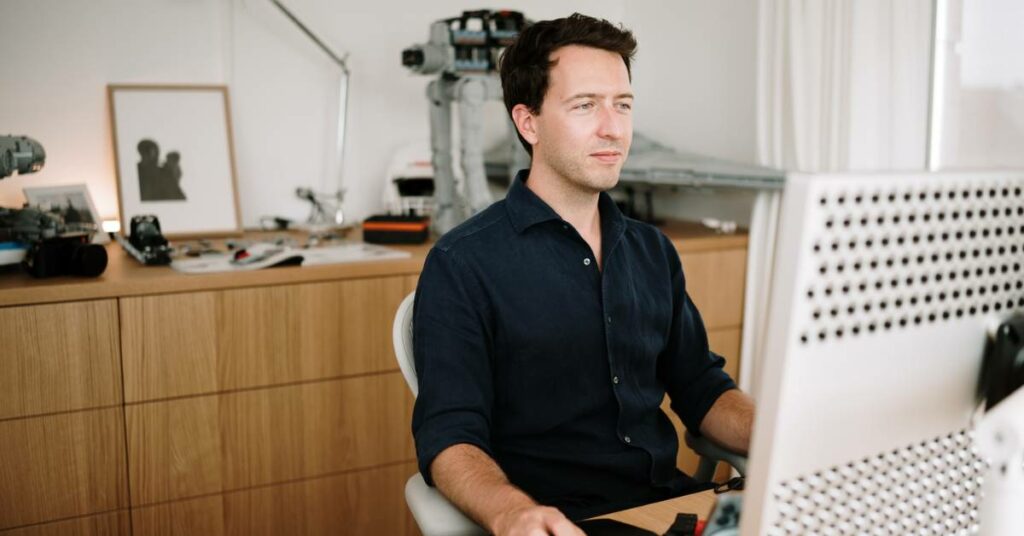

SC: Which sectors are poised for growth in Amsterdam in 2024, and why?
Job: I have no idea. I mean in general, I think startups will do better over time. I don’t think of Amsterdam being a particularly notable area. If you start a startup anywhere in the Netherlands it’s already significant because it’s such a tiny country, so I don’t think there’s anything specific happening in Amsterdam. Having said that, I think a lot is happening in AI but I think there are a lot of second-order startups related to AI that couldn’t exist before and are now easier to build or have at least interesting avenues: for example, biotech. This is probably going to happen a lot in biotech because of the advancements we have made in AI.
SC: How do you see remote work evolving in 2024?
Job: I don’t think there’s going to be any massive shifts in 2024, in the sense that we will continue to see what we have been seeing, which is that there’s going to be more flexible work in time so you can arrange your schedule and flexibility in place so you can work remotely instead of going to the office. We have been seeing that increase over the last years and that won’t change. I don’t think remote work specifically is going to change very much in 2024, I think we will see much more adoption of AI of course. But, the biggest shifts are still likely to come there, after this year and the same with like modalities. One of the things that I expect to change over time is that for example, we’ll start using things like the Apple Vision Pro. Once this kind of device becomes ubiquitous and affordable, we’ll see changes in how people work. But that’s not gonna happen in 2024, so in some ways, it’s gonna be a transition year, but I just expect to see more remote work as a whole.
SC: What change would you like to see in the Dutch tech ecosystem in 2024?
Job: Well I try to contribute to this myself, but I think we need many more startups. And for many more startups to exist and come to be, then we also need much more funding and much more friendly terms for funding and I hope to contribute to that and hope others follow. I think if the funding is good, on good terms and like investors want you to build your own company instead of being too much in the way of you building your company, we’ll do well in the Netherlands but if not, unfortunately not.
SC: How do you see the funding environment changing for Dutch startups in 2024?
Job: You know I am long-term optimistic but presently pessimistic. I think the current situation of funding in the Netherlands for startups is not that great and so for that reason I work together with some friends to try to improve that long term. But in the short term, I don’t see many promising things. In general, in Europe, I think the funding climate is very different because of restrictions and how difficult it is to even establish a company, for example, to issue stock
options. If those things change, the funding environment will positively change, but if not then that’s gonna be difficult. Nonetheless, I’m long-term optimistic, so I do expect to see some positive change because we’re no longer in a zero-interest environment, it’s also a great time to start new companies. So I hope to see some of that, and again it’s also a great time to start new companies because we now have this whole new world to discover with AI and transformer models.
SC: Which Amsterdam-based startup do you think everyone should watch out for in 2024?
Job: I have no idea, I don’t know where companies are found. I am not even in Amsterdam, I live outside of Amsterdam and I don’t consider Remote to be an Amsterdam-based company, because I am one of the few people who is here, so I have no idea, to be honest. But, there are a lot of very ambitious people working in the Netherlands and outside of the Netherlands on exciting ideas and the ones that I always pay the most attention to are the ones that try to shape the future, or what the future is going to look like. So I think today that means that if you are working on biotech or AI or maybe on something that helps us get into space, that’s pretty cool.
